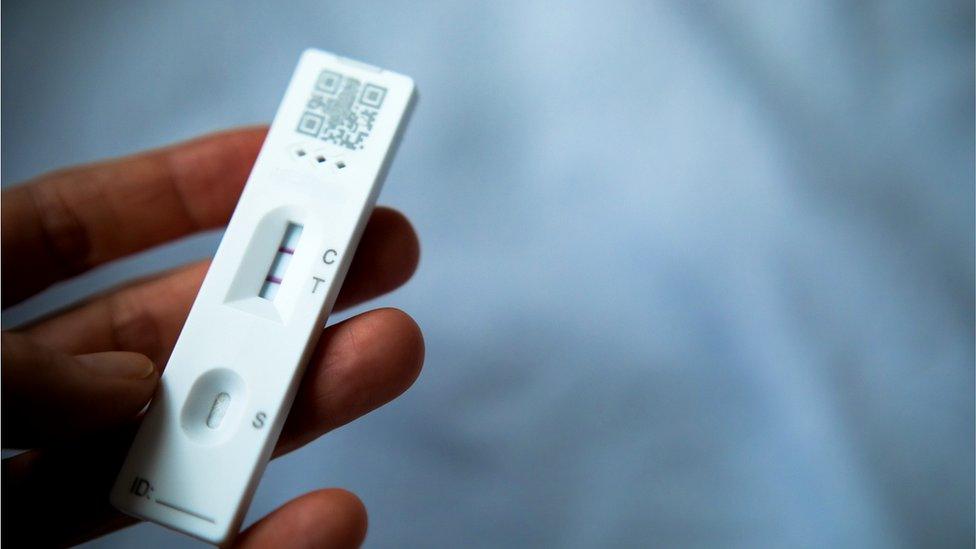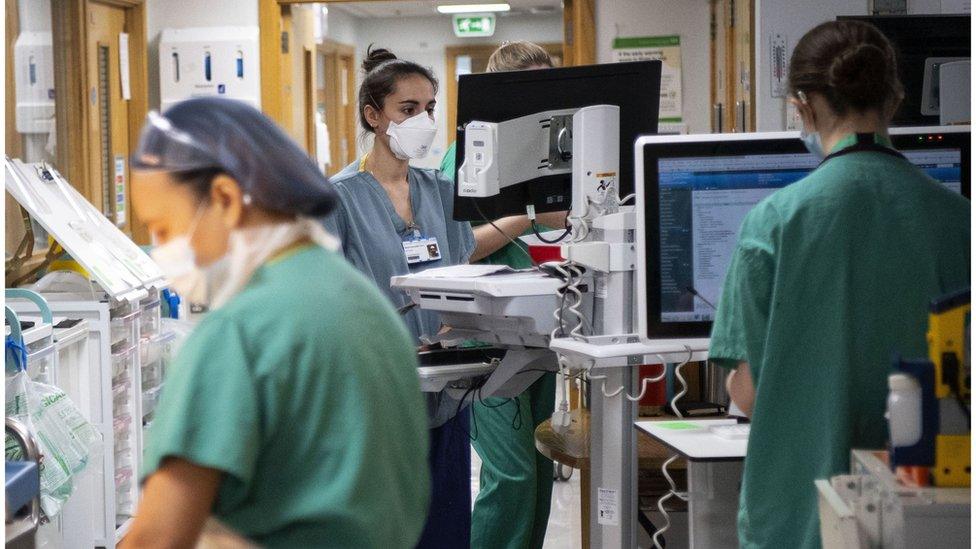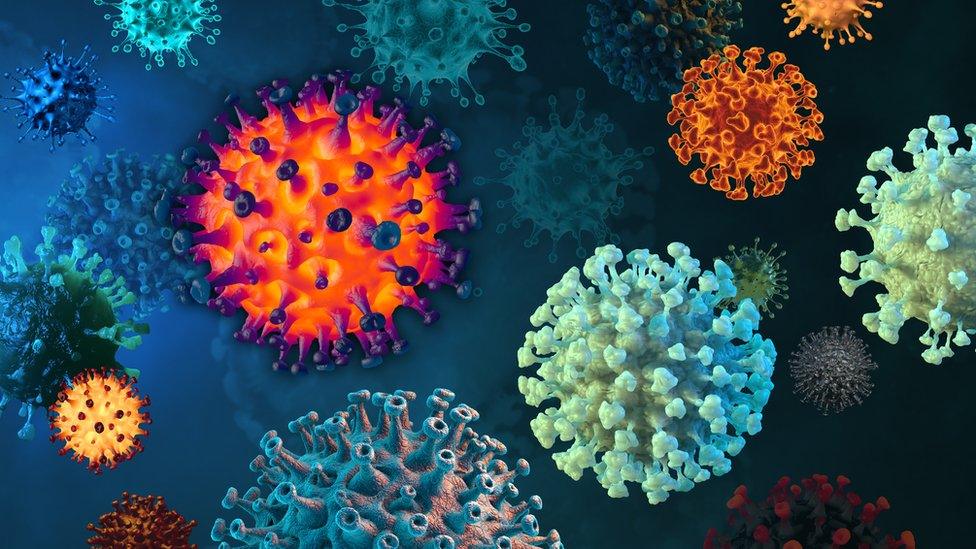Covid infections soar to highest level since July
- Published

Covid cases are once again increasing
Covid-19 infection rates are at their highest since last July with one in 25 estimated to have the infection, according to new figures.
Meanwhile, hospitalisations for flu in Scotland reached the highest level in five years over Christmas.
Public Health Scotland's weekly update reveals nine of the 14 health boards are considered to be experiencing "extraordinary" levels of flu.
It also shows hospital admission rates are highest in children under one.
The ONS Covid infection survey, external estimates an average of 213,100 people were infected on any given day in the week up to 28 December.
Figures from the National Records of Scotland, external also show there were 67 Covid deaths in the week ending 6 January, which is higher than the previous week.
Although levels are much higher than last week when the estimate was one in 40 people, Scotland is currently believed to have the lowest levels of Covid-19 in the UK.
Figures say one in 20 people in England are believed to be infected, as well as one in 18 people in Wales.
In Northern Ireland, the data showed one in 16 people had tested positive - but this was for the week ending 22 December.

Covid and flu are putting pressure on hospitals
Michelle Bowen, head of health surveillance dissemination and strategy for the ONS said: "Infections have risen across the whole of the UK.
"In England, Wales and Scotland, cases are at the highest they have been since July 2022, and the highest they have been since March 2022 in Northern Ireland."
She added that the organisation would "continue to monitor the data closely".
Public Health Scotland's weekly update on influenza shows there were 2,279 influenza cases.
The hospitalisation rate for flu has been on the rise since the middle of 2022 and in the second last week of 2022 it was higher than any week since the beginning of the 2016-2017 season.
The data also showed that in week 52, the most admissions were in patients aged less than one year old - about 13 per 100,000 of the population.
Jillian Evans, head of health intelligence at NHS Grampian told BBC Radio Scotland's Lunchtime Live programme that these numbers were to be predicted following the festive period.
She said: "We always knew the winter period was going to be tricky.
"It is likely infection is going to spread and our efforts have not been about controlling infection, but more geared towards protecting people from the serious affects of Covid."

Children under one are the largest group ending up in hospital with the flu virus
Ms Evans described the flu situation as a cause for concern.
She said: "That is a worry and flu is nasty because it affects the most vulnerable - those very young children and older people.
"It has a wider impact on the population too, and the possibility of illnesses following on from flu."
Ms Evans added that one of the reasons the population is so susceptible to flu this year is because people have been protecting themselves against the effects of Covid.
She said: "Our immunity is lower and we are more susceptible to catching it.
"We are also hearing about the possibility of new variants of Covid but I think mainly what we are seeing is the result of more people mixing and socialising."
'Worsening situation'
Ms Evans also told the programme the prevalence of both respiratory infections was "a worsening situation".
She said: "We need to take stock next week but there is no doubt about it - we are feeling the effects of respiratory infections within hospitals.
"The main thing we can do at the moment is to consider the effects of these infections and how we protect the most vulnerable in society."
Dr Sarah Pitt, virologist at the University of Brighton's Institute of Biomedical Sciences told BBC Scotland a new sub variant of Covid -19 called XBB 1.5 is beginning to emerge in the UK.
She said' "It is a variation of the theme of Omicron. It seems to be a bit more infectious.
"It has taken off quite dramatically in the US and is starting to account for a higher number over here in Europe."
Dr Pitt said that as with previous variants, she expected vaccine protection and previous infection to give some protection from serious illness.
She added: "We should just be aware of it because it is super infectious."
Related topics
- Published14 March 2024

- Published10 January 2023

- Published13 January 2023

